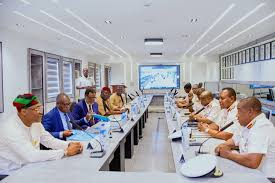Maritime
Customs Records 260 Seizures Worth N342m
The Federal Operation Unit (FOU) Zone A of the Nigeria Customs Service has recorded 260 seizures worth N342 million in January.
The Customs Area Controller in charge of F.O.U Zone A, Deputy Comptroller Victor Dimka, who was impressed by this development, disclosed that the seizures were mainly general goods and vehicles, adding that this year is far better than last year when only 144 seizures were made on the same month.
On his plan to tackle smuggling the customs boss commended the comptroller general of customs for making their job easier by providing them with 40 Hilux patrol vehicles and 100 able customs officers to fortify the team and to beef up activities at F.O.U.
According to him, with this logistics in place to motivate us, we have no reason for not achieving good result in our anti-smuggling battle.
Besides, series of capacity building is going on in the service in order to develop officers, the first of its kind in the history of Nigeria customs.
Dimka, however, vowed to put his life on the line in fighting smuggling to a standstill, adding that four of his officers who were attacked by smugglers are critically ill in the hospital.
“These officers were shot by smugglers for performing their statutory responsibilities. We received hostilities from these smugglers on daily basis and the notorious places are ilara, Imeko and Ijoun villages in Ogun Suburbs”, he said.
We have taken several steps to educate these villagers on the inherent danger smuggling posed to both the economy and nation. Also that government might not be able to have a proper plan on how to provide amenities to its citizens where smuggling thrives”.
He, therefore urged everybody to join hands with Nigeria customs service to sensitise smugglers on the dangers of smuggling.
Maritime
NCC Announces Telecoms Facilities Protection Measures

Maritime
Bureaucracy, Relationship Gaps, Bane Of Maritime Safety Investigation – NSIB

Maritime
UNDP, REA Partner On Clean Energy Transition

-
Featured3 days ago
Rivers LG Poll: APC Wins 20 chairmanship seats, PDP Clears Three
-
News3 days ago
Stop politicising Niger Delta’s plight over personal interest, Ex-militant warns Ijaw youths
-

 Nation3 days ago
Nation3 days agoAccolades, Fanfare As Ogbakor Ikwerre President General Celebrates 80th Birthday
-
News3 days ago
Cleric Condemns Increasing Theft in God’s House
-
News3 days ago
Keep faith with Tinubu’s Renewed Hope Agenda – NOA begs Nigerians
-

 Niger Delta4 days ago
Niger Delta4 days agoBayelsa Tasks Security Agencies On Vigilance Over Waring Communities
-
News3 days ago
Okpebholo, Edo Speaker mourns ex-IGP, Arase
-
News3 days ago
Ojulari: CNPP, civil society groups demand judicial probe into NNPCL

